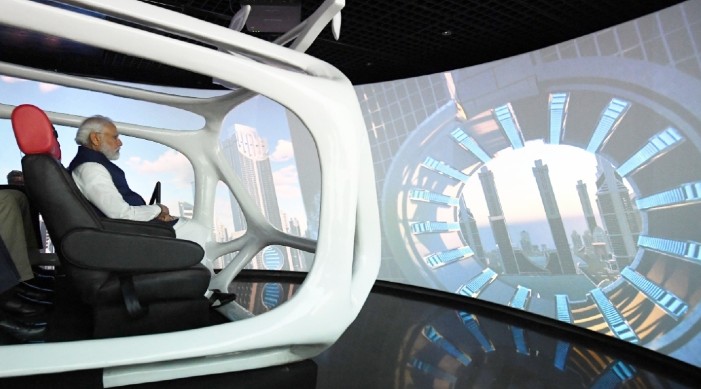The Cabinet Mission came to India aimed to discuss the transfer of power from the British govt. to the Indian leadership, with the aim of preserving India's unity and granting it independence. Formulated at the initiative of Clement Attlee, the PM of the United Kingdom
Memorandum on States' Treaties and Paramountcy presented by the Cabinet Mission to His Highness the Chancellor of the Chamber of Princes on 12 May, 1946.
1. Priorto the recentstatement of the British Prime Minister in the House of Commons an assurance was given to the Princes that there was no intention on the part of the Crown to initiate any change in their relationship with the Crown or the rights guaranteed by their treaties and engagements without their consent. It was at the same time stated that the Princes' consent to any changes which might emerge as a result of negotiations would not unreasonably be withheld. The Chamber of Princes has since confirmed that the Indian States fully share the general desire in the country for the immediate attainment by India of her full stature. His Majesty's Government have now declared that if the Succession Governmentor Governments in British India desire indepedence, no obstacle would be placed in their way. The effect of these announcements isthat all those concerned with the future of India wish to attain a position of independencewithin or without the British Commonwealth. The Delegation have come here to assist in resolving the difficulties which stand in theway of India fulfilling thiswish.
2. During the interim period, which must elapse before the coming into operation of a new Constitutional underwhich British Indiawill be independent orfully selfgoverning, paramountcy will remain in operation. But the 21 British Government could not and will not in any circumstances transfer paramountcy to an Indian
Government.
3. In the meanwhile, the Indian States are in a position to play an important part in the formulation of the new Constitutional structure for India, and His Majesty's
Government have been informed by the Indian Statesthat they desire, in their own interests and in the interests of India as a whole, both to make their contribution to the framing of the structure, and to take their due place in it when it is completed. In order to facilitate this they will doubtless strengthen their position by doing everything possible to ensure that their administrations conform to the higheststandard. Where adequate standards cannot be achieved withinthe existing resources of the State they will no doubt arrange in suitable cases to form or join administrative units large enough to enable them to be fitted into the constitutional structure. It will also strengthen the position of States during this formulative period if the various Governments which have not already done so take active stepsto place themselves in close and constant touch with public opinion in their State by means of representative institutions.
4. During the interim period it will be necessary for the States to conduct negotiations with British India in regard to the future regulation of matters of common concern, especially in the economic and financial field. Such negotiations, which will be necessary whether the States desire to participate in the new Indian Constitutional structure or not, will occupy a considerable period of time, and since some of these negotiations may well be incomplete when the new structure comes into being, it will, in order to avoid administrative difficulties, be necessary to arrive at an understanding between the States and those likely to control the succession Government or Governments that for a period of time the then existing arrangements as to the matters of common concern should continue until the new agreements are completed. In this matter, the British Government and the Crown Representative will lend such assistance as they can should it be so desired.
5. When a new fully self-governing or independent Government or Governments come into being in British India, His Majesty's Government's influence with these
Governments will not be such as to enable them to carry out the obligations of paramountcy. Moreover, they cannot contemplate that British troops would be retained in India for this purpose. Thus, as a logical sequence and in view of the desires expressed to them on behalf of the Indian States, His Majesty's Government will cease to exercise the powers of paramountcy.
This means that the rights of the States which flow from their relationship to the Crown will no longer exist and that all the rights surrendered by the States to the
paramount power will return to the States. Political arrangements between the States on the one side and the British Crown and British India on the other will
thusbe brought to an end. The void will have to be filled either by the States entering into a federal relationship with the successor Government or Governments in
British India, or failling this, entering into particular political arrangements with it orthem.
 Contact Us
Contact Us  Subscribe Us
Subscribe Us









 Contact Us
Contact Us
 Subscribe
Subscribe
 News Letter
News Letter

